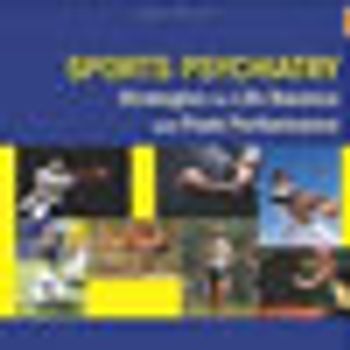
The subtext of Iron Man III speaks directly to psychiatry. Spoiler alert: You might choose to wait to watch the movie – or read this article.

The subtext of Iron Man III speaks directly to psychiatry. Spoiler alert: You might choose to wait to watch the movie – or read this article.

If your practice or your advocacy efforts place you anywhere near people encountering the mental health system for the first time, please have a look at this book.

The Diagnostic Manual of Mishegas (DMOM) is a delightful parody of the American Psychiatric Association’s “Bible of psychiatry,” the DSM-5. (Diagnostic and Statistical Manual of Mental Disorders).

This book draws together the entire spectrum of the relevant psychosocial dimensions and data necessary to adequately assist in the evaluation and treatment of patients who may be candidates for bariatric surgery.

Less common but still important syndromes connected with Alzheimer disease include traumatic brain injury, infectious and inflammatory disorders, alcohol-induced dementia.

The team psychiatrist for Super Bowl Champs, the Baltimore Ravens, draws on his own professional career of working with athletes of all ages and levels and provides a comprehensive presentation of the literature in the emerging field of sports psychiatry.

Both positive and negative symptoms of schizophrenia combined with those of a mood disorder led to a psychiatric diagnosis; later, a neurological diagnosis of anti–NMDA receptor autoimmune encephalitis was made.

Although a romantic comedy, Silver Linings Playbook does not romanticize mental illness for the patient or for the family. What the film does display though is that a life with mental illness effectively treated can be filled with meaning, happiness, and love.

This book is “essential” reading for psychiatrists to familiarize themselves with this work because the author demonstrates that the application of our principal treatments offers the best hope for the education of our nation’s children.

In spite of a chronic mental illness (schizophrenia)and a psyche that increasingly blurred the boundaries between fantasy and reality, this lawyer and professor graduated from Vanderbilt with a perfect academic record.

Importantly for lay and clinician readers alike, the book Monkey Mind: A Memoir of Anxiety reads as humor-laced triumph with many lost battles along the way rather than enduring unrelenting tragedy.

Detailed, thoughtful descriptions throughout a Practical Guide to Correctional Mental Health and the Law provide context and make this reference a realistic and practical resource.

Here, a psychiatrist interviews Charlie Maher, PsyD, CC-AASP, author of The Complete Mental Game of Baseball: Taking Charge of the Process On and Off the Field. A licensed psychologist, Dr. Maher is Professor Emeritus of Applied Psychology at Rutgers University, and serves as the Director of Psychological Services for the Cleveland Indians.

Borderline Personality Disorder: New Reasons for Hope is one in a series being published by Johns Hopkins University Press on major psychiatric disorders.

David Cronenberg’s film "A Dangerous Method" tells the story of the relationship between Freud and Jung and a woman named Sabina who had a considerable influence on both of them.

Structured around fictional case vignettes, this book presents the different pathways through which one enters the mental health system. Patients can better judge whether they are being offered the optimal treatment modality and can more effectively assess the stylistic match between themselves and their therapist.

Mostly prose with effective inclusion of poetry, author Jill Bialosky adds an important survivor’s perspective in her book of her sister's suicide. To clinicians in particular, the book may serve as a window into the psychic lives of those left behind following a tragic end.

Although memoirs have become all the rage, they are rarely written by anyone in the field of psychiatry . . . and for good reason.

Terrence Malick’s The Tree of Life is not easy entertainment, but for psychiatrists who might welcome an encounter with a brilliant, uncompromising mind, The Tree of Life is enthralling.

From my standpoint as the author of Unhinged, Dr Haldipur’s review is both good news and bad news.

Unhinged is one of many books published in the past few years critical of psychiatry. A book of scandals and debates, and a polemic of sorts-a “trahison des clercs”-rather than an intellectual discussion about psychiatry. Therein lies the trouble with psychiatry.

Talking to Families About Mental Illness aims to help primary care providers who want to offer family psychoeducation. This book targets non-psychiatrists who diagnose and treat mental illnesses.

If you’ve ever wondered what psychoanalytic treatments are like, The King’s Speech provides an unusually good cinematic representation of a psychoanalytic therapy.

See if you can tell if the following quote comes from religious wisdom or a CBT therapist: “To defeat depression, you must introduce a fresh perspective to your thinking. You must begin to replace troubling, destructive thoughts with positive, constructive ones.” To this, we say, “Amen.”

I would recommend it for medical students who have been thrust into the role of primary decision maker for their patients, and clinicians who would appreciate a pocket supervisor to help them make treatment decisions.